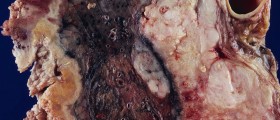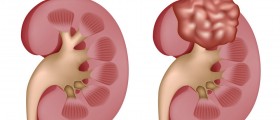
The medical term for the occurrence of fluid aroundthe heart is pericardial effusion and when the patient is diagnosed with thiscondition, it causes a lot of fear since it sounds very seriously.
The structure of our heart is very complex. This organ has four chambers and valves, which are protected by a membrane. The membranehas two layers and it is called pericardium. In a healthy person, it is allowed thatthe space between the heart and the membrane is filled with a few millimeters ofthe fluid, but when this fluid accumulates in an abnormal amount, it is seriousand causes pericardial effusion. There are also cases, although few, where thefluid even contains blood.
Causes of fluid around the heart
Pericardial effusion neither depends on the age ofthe person, nor is it an inheritable condition. However, there are several medicalconditions that greatly influence the formation of the excess fluid around the heart.For example, when the pericardial fluid flow is somehow blocked, or when theblood builds up in the pericardium, pericardial effusion occurs. Furthermore, fluid around the heart may also becaused by the cancer of several organs, which expanded to the heart. The cancer ofthe thyroid gland, pancreas cancer, leukemia and the kidney cancer are some ofthe diseases that tend to induce the accumulation of fluids around the heart. Moreover,the cancer of cervix in women also leads tothe fluid buildup, and the same is possible with the cancer of esophagus and stomach.
Tuberculosis, as well as various infections (whether viral, bacterial or caused by any other pathogen) might also beresponsible for the occurrence of pericardial effusion. Other health disorders that are considered to bethe triggers of the accumulation of fluid between the pericardium and the heartare congestive heart failure, kidney disorders, rheumatoid arthritis and breastcancer in women. Chemotherapy and a surgery, as well as an injury tothe heart and the consummation of certain medicines, might lead to the incidenceof pericardial effusion.
Symptoms of fluid around the heart
Among the first warning signs of pericardial effusion are shortness of breath and troublesome breathing, which usually appear while doing somesimple daily activities. Furthermore, the people with this condition might alsofeel a strong sharp pain in the chest, dry cough and a feeling of heaviness inthe chest. Fluid around the heart may also cause dizziness,difficulty when swallowing and low grade fever. In some severe cases, lips mayturn blue in color.

















Your thoughts on this
Loading...